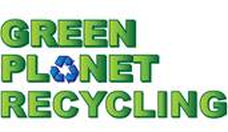In today’s environmentally conscious world, recycling has become a vital practice. One area that requires particular attention is the recycling of used oil. Used oil recycling plays a crucial role in preserving natural resources, reducing pollution, and minimizing the impact on our planet. In this comprehensive guide, we will delve into the various aspects of used oil recycling, exploring its benefits, processes, and best practices. So, let’s embark on this journey to understand how we can effectively manage and recycle used oil.
Looking for a professional service? CONTACT US for a FREE QUOTE
What is Used Oil Recycling?
Used oil recycling refers to the process of collecting and reprocessing used oil, which has been contaminated or degraded through use. This recycling process aims to remove impurities and restore the oil to a usable condition. By recycling used oil, we can prevent it from becoming hazardous waste and avoid its improper disposal, which can have severe environmental and health consequences.
Why is Used Oil Recycling Important?
Used oil, if not properly managed, can pose significant risks to the environment and human health. When disposed of inappropriately, it can contaminate soil, groundwater, and surface water bodies, causing pollution and ecological damage. Additionally, burning used oil or pouring it down drains can release toxic substances into the air, leading to air pollution and respiratory problems.
By recycling used oil, we can address these concerns effectively. Recycling allows us to recover valuable resources, reduce the need for virgin oil production, and minimize the demand for finite natural resources. It also helps in conserving energy and reducing greenhouse gas emissions associated with oil refining processes.
How is Used Oil Recycled?
The process of used oil recycling involves several steps, including collection, transportation, and re-refining. Let’s explore each of these steps in detail:
1. Collection
The first step in used oil recycling is the collection of used oil from various sources, such as automotive shops, industries, and households. Collection centers or drop-off points are established to facilitate the proper disposal of used oil. These centers ensure that the oil is stored and transported in suitable containers to prevent leaks or spills.
2. Transportation
Once collected, the used oil is transported to recycling facilities or re-refineries. Specialized trucks equipped with appropriate storage and containment systems are used for safe transportation. This ensures that the oil remains secure and does not leak during transit, further reducing the risk of environmental contamination.
3. Pre-treatment
At the recycling facility, the used oil undergoes pre-treatment to remove any water, solids, or contaminants. This is typically done through processes such as gravity separation, centrifugation, or filtration. The pre-treatment step helps prepare the oil for the re-refining process and improves the quality of the end product.
4. Re-refining
Re-refining is the core process of used oil recycling. It involves the removal of impurities, additives, and contaminants from the used oil, restoring it to a usable state. The re-refining process typically includes distillation, hydrotreating, and fractionation. These processes help separate the different components of the used oil, allowing for the recovery of base oil, which can be used as a lubricant in various applications.
5. Product Testing
After re-refining, the recycled oil undergoes rigorous testing to ensure its quality and compliance with industry standards. The oil is tested for factors such as viscosity, flash point, and contaminant levels. This testing helps guarantee that the recycled oil meets the required specifications and can be safely used in different applications.
6. Product Distribution
Once the recycled oil passes the quality tests, it is ready for distribution. The recycled oil can be sold to industries, automotive shops, or other consumers who can utilize it as a lubricant or fuel source. Proper labeling and documentation accompany the distribution of recycled oil, providing information about its origin, specifications, and recommended applications.
Best Practices for Used Oil Recycling
To ensure the efficient and safe recycling of used oil, it is important to follow best practices. Here are some essential guidelines to consider:
- Proper Storage: Store used oil in designated containers that are labeled and sealed tightly to prevent leaks or spills. Keep the containers in a well-ventilated area away from ignition sources.
- Prevent Contamination: Avoid mixing used oil with other substances, such as antifreeze or solvents. Contaminated oil is more difficult to recycle and may require additional treatment.
- Use Certified Collection Centers: Dispose of used oil at authorized collection centers or recycling facilities. These centers have the necessary infrastructure and expertise to handle and recycle used oil safely.
- Educate and Raise Awareness: Promote awareness about the importance of used oil recycling through educational campaigns and community outreach programs. Encourage individuals and businesses to adopt responsible recycling practices.
- Support Re-refining Initiatives: Choose recycled oil products whenever possible. By supporting the market demand for recycled oil, you contribute to the growth of the re-refining industry and help close the recycling loop.
- Regular Maintenance: Follow proper maintenance practices to minimize oil contamination and extend the lifespan of lubricants. Regularly check for leaks, use proper filtration systems, and adhere to recommended oil change intervals.
FAQs About Used Oil Recycling
- What types of oil can be recycled?
Used motor oil, hydraulic oil, transmission fluid, and industrial oils are some examples of oils that can be recycled. It is essential to segregate different types of oil during collection to ensure effective recycling.
- Can used oil be recycled indefinitely?
While used oil can be recycled multiple times, it may eventually reach a point where its quality deteriorates beyond reuse. However, the re-refining process can recover valuable base oil components, even from heavily degraded oil.
- Is recycling used oil cost-effective?
Yes, used oil recycling can be a cost-effective option. The re-refining process allows for the recovery of valuable base oil, which can be sold as a commodity. Additionally, recycling used oil reduces the need for virgin oil production, resulting in overall cost savings.
- What are the environmental benefits of used oil recycling?
Used oil recycling offers several environmental benefits. It conserves natural resources by reducing the demand for virgin oil. It also helps prevent pollution of soil, water bodies, and air, reducing the overall environmental impact associated with improper disposal or incineration.
- Can individuals recycle used oil at home?
While recycling used oil at home is challenging, individuals can collect and store used oil in suitable containers and drop them off at authorized collection centers or recycling events. It is important to follow local regulations and guidelines for safe disposal.
- How can I find local used oil collection centers?
To find local used oil collection centers, you can visit the website of your local environmental agency or contact them directly for information. They can provide details about the nearest centers and any specific requirements for disposal.
Conclusion
Used oil recycling plays a vital role in preserving our environment and conserving natural resources. By following proper collection, transportation, and recycling processes, we can effectively manage used oil and prevent its harmful effects on the ecosystem. Remember to store used oil safely, support re-refining initiatives, and raise awareness about the importance of responsible recycling practices. Together, we can contribute to a sustainable future by embracing the principles of used oil recycling.
Looking for a professional service? CONTACT US for a FREE QUOTE

